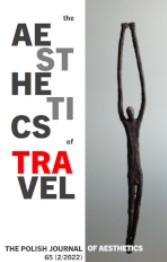Travels with Kierkegaard
Travels with Kierkegaard
Author(s): Elisabete M. de SousaSubject(s): Ethics / Practical Philosophy, Aesthetics, Other Language Literature, 19th Century Philosophy, 19th Century, Theory of Literature
Published by: Wydawnictwo Uniwersytetu Jagiellońskiego
Keywords: Kierkegaard; Travel Literature; Repetition; Recollection; Imaginary;
Summary/Abstract: The idea of traveling, as a theme, topic, or metaphor, is present in Kierkegaard’s production—namely, in the dialectics between the objective and subjective, the role of the imaginary in recollection, the reflection on memory, space and time, and, more significantly, in the dialectics of recollection and repetition. Moreover, the idea of traveling has a pivotal role within the aesthetic, the ethical, and the religious stages, which structure all of his writings. In Fear and Trembling and Repetition, traveling lies at the core of the philosophical debate. I begin by presenting the Gilleleje notes, followed by the recurrent use of Opdagelse-reise (great voyage of discovery) in his works; then, I introduce his idea of ethical traveling and the ensuing conception of the Christian as a traveler; I also discuss his ambivalent disposition regarding the demand for traveling in his day. In the second part, I analyze the philosophical use of the idea of traveling by focusing first on Abraham’s journey to Mount Moriah in Fear and Trembling and then on the seminal proposal of a dialectical relation between repetition and recollection in Repetition. I end by drawing conclusive remarks from the previous analyses, which guide me to elaborate proposals for a more holistic understanding of the genre of travel literature.
Journal: Estetyka i Krytyka
- Issue Year: 65/2022
- Issue No: 2
- Page Range: 29-43
- Page Count: 16
- Language: English

